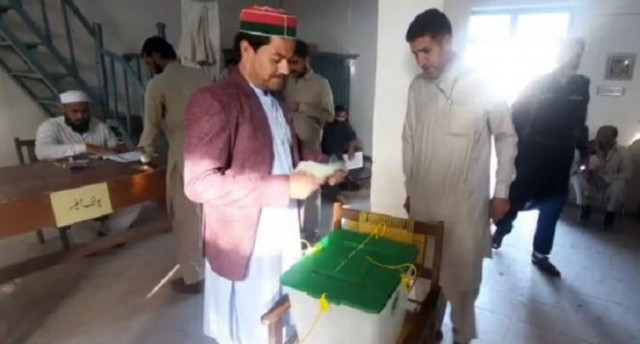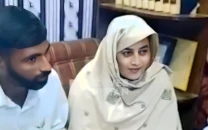Polls expected before end of Jan, date pending
ECP prepones revamping of constituencies to Nov 30

After months of dilly-dallying, the Election Commission of Pakistan (ECP) on Thursday announced the next general elections in the last week of January – almost three months after the constitutional time-frame – but the commission again stopped short of giving a firm date.
Still the announcement offers the much-needed hope to a nation that has been grappling with the consequences of political uncertainty since the last one-and-a-half-year.
The elections were due to be held in November, but were delayed due to fresh demarcation of constituencies under a new census. The ECP did not give a definite date for the voting which is considered crucial to salvage a falling economy.
Since the dissolution of the assemblies last month, two main political parties – the Pakistan Peoples Party (PPP) and the Pakistan Tehreek-e-Insaf (PTI) – have consistently been impressing upon the ECP to announce a date for the general elections.
The ECP, in a statement, said that it reviewed the progress of the delimitation process on Thursday and decided that the preliminary list of constituencies would be published on September 27.
After hearing objections and suggestions on the new constituencies, the final list of constituencies would be published on November 30. A 54-day period would be given in the election schedule, and the polls would be held in the last week of January 2024, it added.
Earlier, the ECP had announced that it would be reducing the time period required to complete the delimitation process and that its publication of the new constituencies would now be final by November 30 instead of December 14 as earlier announced.
Read Can ECP move pave the way to stability?
The purpose of reducing the duration of delimitation was to ensure the elections as soon as possible. A previous ECP statement had said that under the purview of the revised date of the delimitation “the election schedule will also be announced”.
Though the ECP announced elections in the last week of January, it hasn’t specifically announced the date for elections, raising doubts if this would be the final decision, as it is still conjectured that the ECP can reduce or extend the time for polls.
The statement was issued after discussions with different stakeholders during an emergency meeting summoned by the ECP. Of late, the ECP had conducted back-to-back meetings with different political parties to take stock of their positions, regarding the elections and the delimitation, among other things.
Despite the delay, the announcement eases political uncertainty about the timing of the polls, as the country struggles to stay on a narrow stabilisation path under a $3 billion bailout plan by the International Monetary Fund (IMF).
Analysts and political parties have been demanding that the elections should be held as soon as possible to boost confidence in the ailing $350 billion national economy, which is currently suffering high inflation, low growth and a weak currency.
Read: US urges ‘timely, fair’ elections in Pakistan
The Asian Development Bank (ADB) also endorsed this view in a report this week, saying that a smooth election process in the country would help bring the economy back on track.
The benchmark KSE-100 index gained more than 550 points immediately after the ECP announcement, closing 0.7% up. "News on the election is a major positive, which is expected to restore investor confidence in the system," said Fahad Rauf, head of research at Ismail Iqbal Securities.
Conversely, Pakistan's dollar-denominated government bonds slipped by as much as 1 cent on Thursday after the announcement that the elections would be delayed.
As it stands, former prime minister and PTI chairman Imran Khan cannot fight this election after he was barred from public office for five years after a conviction in corruption case.
There are two other main contenders to lead the next government: the Pakistan Muslim League-Nawaz (PML-N) of the last prime minister Shehbaz Sharif and the Pakistan Peoples Party (PPP).
Three-time former prime minister Nawaz Sharif – brother of former prime minister Shehbaz, whose PML-N was the senior partner in the previous coalition government – is seeking return from exile.
But with a corruption conviction against him still in force, Shehbaz remains the front runner to return to power in the PML-N.
Bilawal Bhutto Zardari, 35, the young chairman of the PPP and son of former prime minister Benazir Bhutto, is another key candidate. He made waves locally and in foreign capitals in his first government job as foreign minister in the previous coalition government, and is widely seen as a prime ministerial hopeful.
Former prime minister Shehbaz Sharif dissolved the National Assembly on August 9, three days ahead of its mandated period. Hence, the 90-day limit for the ECP to hold elections under the Constitution ends on November 9.
However, on August 17, the election supervisor announced that it would revamp all the national and provincial assemblies’ constituencies in light of the digital census, 2023 within 120 days.



















COMMENTS
Comments are moderated and generally will be posted if they are on-topic and not abusive.
For more information, please see our Comments FAQ